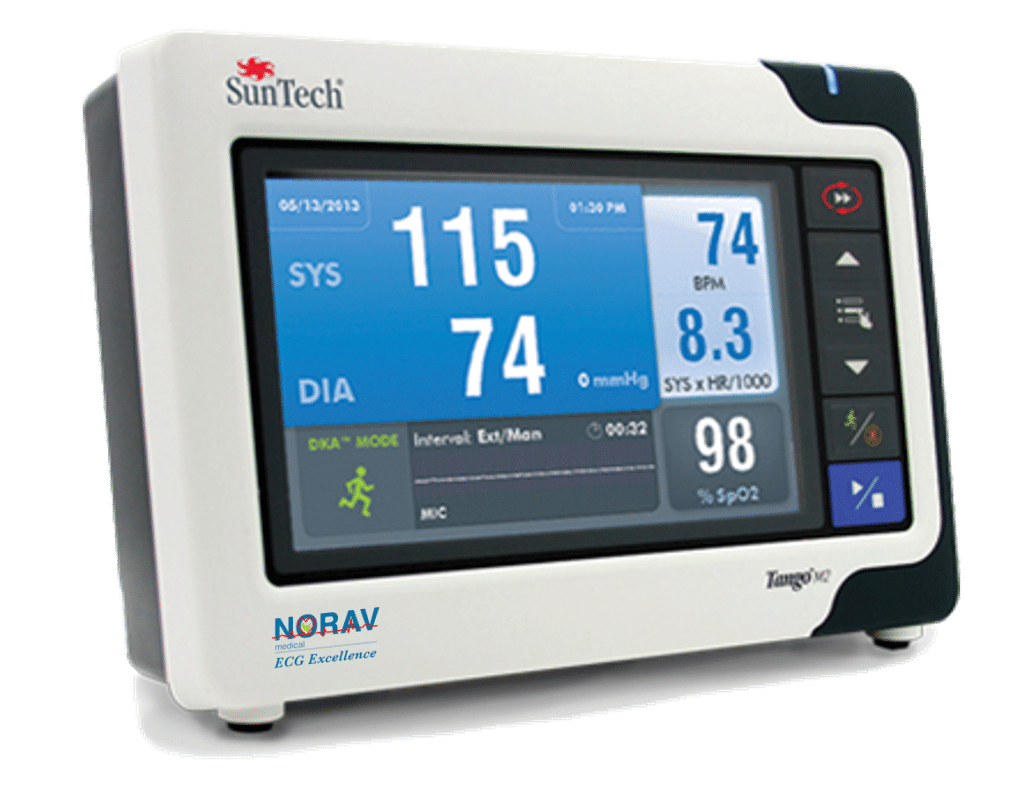Pros of Stress ECG over Other Cardiac Tests

Cardiovascular disease remains a leading cause of morbidity and mortality worldwide. Accurate and timely diagnosis of cardiac conditions is essential for effective management. Several diagnostic tests are available to assess cardiac function and detect heart diseases. This article compares Stress Electrocardiography (Stress ECG) with other cardiac diagnostic tests, such as nuclear stress tests and echocardiograms, emphasizing the advantages of Stress ECG in terms of cost, simplicity, accessibility, and patient comfort.
Stress ECG: An Overview
Stress ECG, also known as exercise ECG or treadmill test, is a non-invasive diagnostic tool that evaluates cardiac function during physical stress. It involves continuous ECG monitoring while the patient exercises, typically on a treadmill. Stress ECG assesses the heart’s response to increased workload and can identify potential cardiac abnormalities. It is widely used to detect coronary artery disease (CAD) and assess exercise capacity.
Comparison with Nuclear Stress Tests
Nuclear stress tests, also known as myocardial perfusion imaging, are a different category of cardiac diagnostic tests that involve the use of a radioactive tracer. Here, we will compare Stress ECG with nuclear stress tests regarding various parameters.
Cost-Effectiveness:
– Stress ECG: Stress ECG is significantly more cost-effective than nuclear stress tests. It does not involve the use of expensive radioactive tracers or imaging equipment. The primary cost concerns ECG equipment and the personnel conducting the test.
– Nuclear Stress Test: Nuclear stress tests can be expensive due to the use of radiopharmaceuticals and specialized imaging equipment. Additionally, interpreting nuclear stress images may require the expertise of nuclear medicine specialists, further increasing costs.
Simplicity and Accessibility:
– Stress ECG: Stress ECG is a straightforward test that does not require extensive preparation. It is widely available in most healthcare facilities, making it highly accessible. Patients can typically undergo this test without significant prior planning.
– Nuclear Stress Test: Nuclear stress tests involve the intravenous injection of a radiopharmaceutical and require specialized nuclear medicine facilities equipped with gamma cameras. Patients need to schedule appointments and may experience delays due to the availability of these resources.
Radiation Exposure:
– Stress ECG: Stress ECG does not involve exposure to ionizing radiation, making it a safer option in terms of radiation exposure for both patients and healthcare providers.
– Nuclear Stress Test: Nuclear stress tests expose patients to ionizing radiation due to the use of radioactive tracers. While the radiation dose is typically low and considered safe, it is a factor to consider, especially in cases where repeated tests are required.
Patient Comfort:
– Stress ECG: Stress ECG is a relatively comfortable procedure for most patients. It involves walking on a treadmill, which mimics natural physical activity and does not require injections or exposure to radioactive substances.
– Nuclear Stress Test: Nuclear stress tests involve intravenous injections and lying still under a gamma camera for imaging. Some patients may find this less comfortable, and individuals with claustrophobia might experience discomfort.
Comparison with Echocardiograms
Echocardiograms, also known as cardiac ultrasound, are a valuable tool for assessing cardiac structure and function. Here, we will compare Stress ECG with echocardiograms based on several factors.
1. Cost-Effectiveness:
– Stress ECG: Stress ECG is generally more cost-effective than echocardiograms. It requires less specialized equipment and expertise, resulting in lower overall costs.
– Echocardiograms: Echocardiograms involve the use of specialized ultrasound equipment and skilled sonographers or cardiologists. These factors contribute to higher costs compared to Stress ECG.
2. Simplicity and Accessibility:
– Stress ECG: Stress ECG is a simple and accessible test. It can be performed in a standard clinical setting with basic ECG equipment and a treadmill, making it widely available.
– Echocardiograms: Echocardiograms require specialized ultrasound machines and skilled operators. While echocardiograms are readily available in many medical facilities, they may not be as accessible as Stress ECG.
3. Information Provided:
– Stress ECG: Stress ECG primarily assesses the heart’s electrical activity during exercise and effectively detects changes in the ECG pattern associated with ischemia. It is well-suited for identifying coronary artery disease.
– Echocardiograms: Echocardiograms provide detailed images of the heart’s structure and function, including information on cardiac chambers, valves, and ejection fraction. They are more comprehensive for evaluating structural abnormalities and certain heart conditions.
4. Patient Comfort:
– Stress ECG: Stress ECG is generally well-tolerated by patients, as it involves walking on a treadmill, which is a natural and straightforward form of exercise.
– Echocardiograms: Echocardiograms are non-invasive but may require the patient to lie in specific positions and hold their breath briefly during the procedure. While generally comfortable, some patients may find these aspects less convenient.
Bringing It All Together
Stress ECG, when compared to nuclear stress tests and echocardiograms, offers distinct advantages in terms of cost-effectiveness, simplicity, accessibility, and patient comfort. It is a valuable tool for assessing cardiac function during physical stress and is particularly well-suited for detecting coronary artery disease. However, the choice of diagnostic test should be based on the individual patient’s clinical presentation and the specific information needed for diagnosis and treatment planning. Cardiologists and healthcare providers should consider the pros and cons of each test to make informed decisions that ensure the safety and well-being of patients.